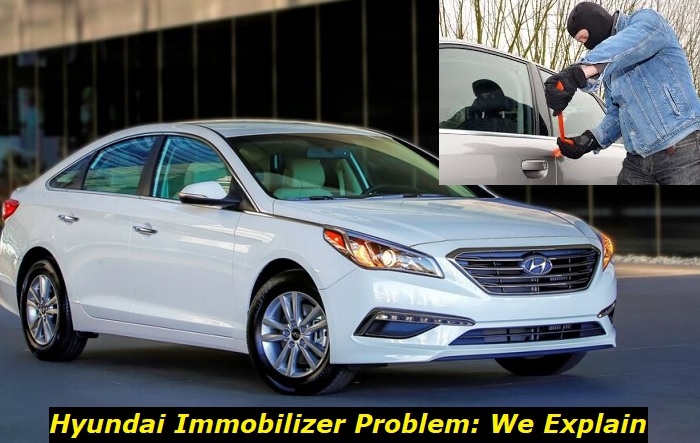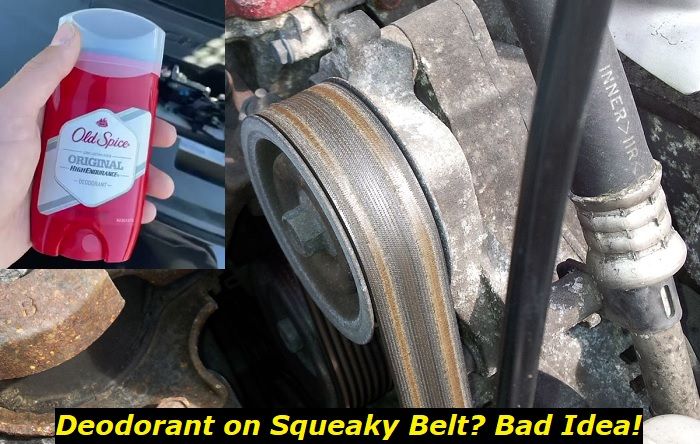An engine immobilizer is an anti-theft system that protects your vehicle from theft. The state-of-the-art system detects when you insert the wrong key in the ignition switch. If your car uses keyless ignition, the key fob transmits a specific code to the engine transponder to confirm it is the right key.
Engine electronics problems highlights
- Level of urgency:Medium
- DIY inspection:Very complicated
- DIY repair:Impossible
- Cost of repair:$250 - $450
- Can you drive?Usually, yes
- Commonreasons:Electronic control modules failure, electrical contacts problems, wiring issues, software problems
- Ways to fix:Usually, professional inspection and repair needed only

Do All Hyundai Cars Have an Engine Immobilizer?
Unfortunately, not all Hyundai vehicles have an engine immobilizer.
Some Hyundai cars and SUVs do not have this crucial anti-theft system. According to an insurance industry group, thieves target these at twice the rate of other cars.
The theft began in Milwaukee in 2020. However, following the trending tutorial videos on social media, the trend has since gotten owners and police departments on high alert across the country.
The Highway Loss Data Institute revealed that Hyundai vehicles without the engine immobilizer had a claim rate of 2.18 per 1,000 insured vehicle years. Hyundai shared this claim rate with KIA. The rest of the vehicle industry had a combined rate of 1.21.
The institute, a unit of the Insurance Institute for Highway Safety, compared vehicles manufactured between 2015 and 2019 and studied vehicle theft claims of 2021. Several Hyundai vehicles, especially the cheap ones, do not have the anti-theft chip in their keys. This means there is no way the vehicle's computer system can tell when you try to start your car with the wrong or duplicate key.
Some of the Hyundai cars lacking the engine immobilizer include:
- Hyundai Accent,
- Hyundai Elantra
- Hyundai Elantra GT
- Hyundai Sonata
- Hyundai Veloster
- Hyundai Venue
- Hyundai Kona
- Hyundai Tucson
- Hyundai Santa Fe
- Hyundai Santa Fe Sport
- Hyundai Santa Fe XL
- Hyundai Palisade
These are some lowly-priced Hyundai cars manufactured between 2016 and 2021.
Although the study shows that the introduction of the engine immobilizer had a positive impact on the vehicle industry, Hyundai lagged behind a little. In 2015, engine immobilizers were standard features in 96 percent of vehicles from other auto manufacturers.
However, despite the rapid uptake of the technology by the rest of the industry, only 26 percent of Hyundai vehicles had this crucial anti-theft technology in 2015. The worst part is that Hyundai has never explained why they had so many cars rolling out of the factory without the engine immobilizer.
The TikTok Challenge that Made These Cars a Target
Although these cars were already easy to steal, they were safer before a TikTok challenge spread across the country, challenging teens to steal cars using a USB cable. The challenge targeted mostly Hyundai and KIA cars without the engine immobilizer - cars manufactured between 2010 and 2021.
According to police investigation reports, the challenge video went viral in 2021 on TikTok and other social media platforms. According to the reports, Hyundai and KIA cars stolen because of this challenge greatly increased in the last year.
The Tutorial
In several videos that followed the first challenge, the thieves pry on the ignition cover of your Hyundai and use a USB cord or screwdriver to turn the car on and drive away.
In 2021, out of the 10,476 cars reported stolen in Milwaukee, 66 percent were Hyundai and KIA vehicles. Although the number of stolen cars reported in the same city dropped to 6,048 through September 2022, Hyundai and KIA still topped at 58 percent.
According to the Milwaukee Journal Sentinel newspaper, these cars were so easy to steal that a 17-year-old was one of the arrested culprits in Milwaukee. According to Milwaukee Police, arrested suspects could face up to 22 years imprisonment.
Hyundai issued a statement conceding that their cars had become targets due to a lack of the engine immobilizer. The automaker said those vehicles met all the federal safety standards and that what was happening was unfortunate.
The Fix
To help fix the problem, Hyundai developed a security system, much like an engine immobilizer, for 2016 to 2021 models. The device costs $170 and is available for the models we mentioned earlier, which include Elantra, Kona, Venue, and Tuscon, among other Hyundai cars.
Identified as Firstech/Compustar security kit, the immobilizer-like device has an alarm system and a sensor that detects a thief trying to temper with the glass. The kit detects any glass breakage, tilting, or strong impact.
All owners of 2016 to 2021 Hyundai cars that lack the engine immobilizer should acquire this kit to protect their vehicles. Moreover, although Best Buy, a popular online store, sells a similar kit, Hyundai says that using a generic kit will void the vehicle's warranty.
The Firstech/Compustar kit is available for purchase and installation at all authorized Hyundai dealerships and Compustar installers. If you own any Hyundai vehicle manufactured between 2016 and 2021, you will pay for the buying price and installation cost of the kit, which could cost around or over $200.
Although Compustar sells its security kits online, Hyundai says that this kit is unique and will only be available in Hyundai dealerships and authorized Compustar installers. Hyundai provided dealerships with installation guides for the kit, which should take at most two and a half hours.
This is good news for Hyundai owners. KIA owners only get steering wheel locks. KIA distributed these locks to police departments of affected areas for owners to collect at no cost.
From now on
Following the rampant theft, Hyundai announced they would install engine immobilizers on all new cars. All new Hyundai models manufactured from November 2021 come standard with this crucial security feature. That means most 2022 and 2023 models are safe from these teenage car thieves.
Meanwhile
Do you own a 2016 to 2021 Hyundai model and do not want to spend $170 to keep it safe? There are other ways you can keep your car safe. Social media is a powerful tool, and those who have lost their vehicles can attest to that. The TikTok challenge that exposed this weakness with most Hyundai cars began in Milwaukee but was soon a countrywide security concern. It is important to keep your car secure.
If you own a 2016-2021 Hyundai, consider the following:
- Purchase a steering wheel lock. This cheap security hack will visually tell a thief that your car is immovable.
- Practice standard security measures such as using secure parking lots. Always remember to lock your vehicle doors.
To Conclude
If you own a Hyundai manufactured between 2016 and 2021, your car might not have an engine immobilizer, a crucial security feature that protects vehicles from theft. If your car key does not have a plastic housing, you do not have the immobilizer, and your vehicle might be at risk of theft.
Hyundai rolled out a security kit that works as an engine immobilizer for the affected vehicles to keep your car safe. The kit costs $170 and is available at Hyundai dealerships. You can also use a steering wheel lock to deter thieves from attempting or stealing your car.
About the authors
The CarAraC research team is composed of seasoned auto mechanics and automotive industry professionals, including individuals with advanced degrees and certifications in their field. Our team members boast prestigious credentials, reflecting their extensive knowledge and skills. These qualifications include: IMI: Institute of the Motor Industry, ASE-Certified Master Automobile Technicians; Coventry University, Graduate of MA in Automotive Journalism; Politecnico di Torino, Italy, MS Automotive Engineering; Ss. Cyril and Methodius University in Skopje, Mechanical University in Skopje; TOC Automotive College; DHA Suffa University, Department of Mechanical Engineering






Add comment